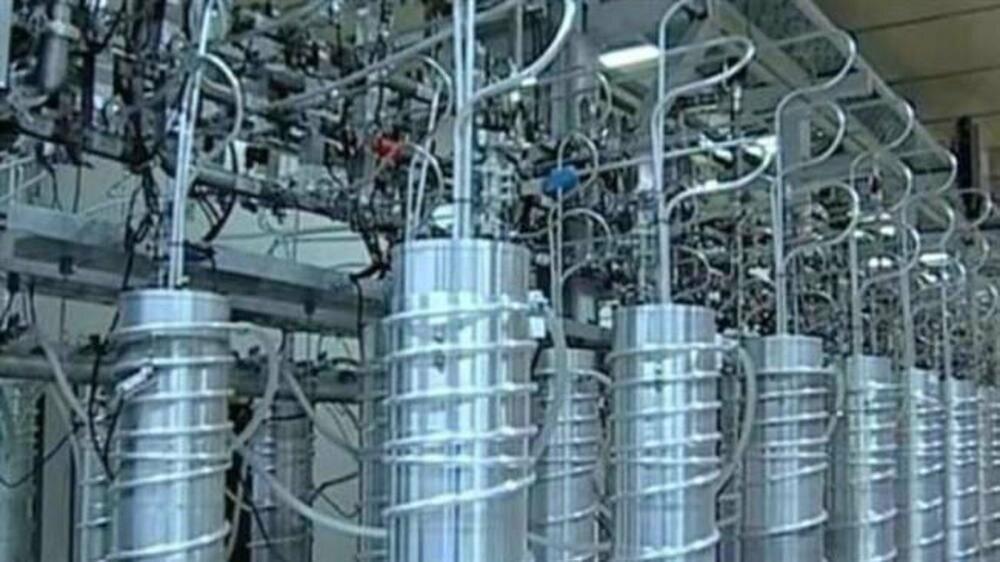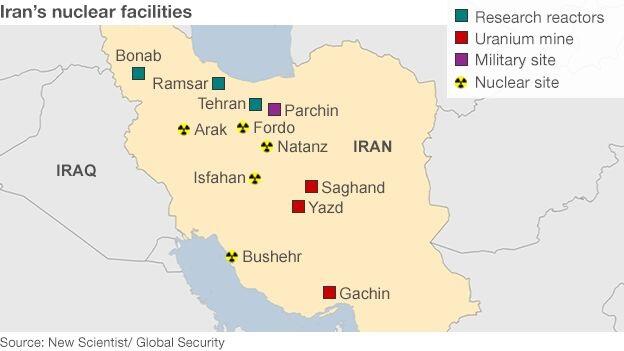“If Iran’s existence is threatened, we will have no choice but to reverse our nuclear doctrine,”

Currently, it is no secret that the Islamic Republic has been drastically increasing the quantity and purity of its enriched uranium - which has hastened over the last year, after an already upward trajectory since Trump pulled out of the JCPOA nuclear deal in 2018.
The New York Times in a fresh report says an unprecedented trend is cause for serious alarm: "For the first time, some members of Iran’s ruling elite are dropping the country’s decades-old insistence that its nuclear program is entirely for peaceful purposes." This comes just as Iran - which remains the archnemesis of Israel - is about to pick a new president after Ebrahim Raisi's recent death in a helicopter crash.
"Instead, they are publicly beginning to embrace the logic of possessing the bomb, arguing that recent missile exchanges with Israel underscore the need for a far more powerful deterrent," continues the NY Times.
Tehran is fully aware of its status as a 'threshold state' and is using this to project strength in its broader standoff with Israel in the region:
In interviews with a dozen American, European, Iranian and Israeli officials and with outside experts, the cumulative effect of this surge appears clear: Iran has cemented its role as a “threshold” nuclear state, walking right up to the line of building a weapon without stepping over it.
And yet Israel's Benjamin Netanyahu has warned many times over the years that he will not allow Iran to achieve nuclear status. He has vowed to launch a preemptive attack should Tehran cross this line.
But this has not stopped an official close to Iran’s supreme leader from recently explaining that if the country were to face an existential threat, it would "reconsider its nuclear doctrine" — as quoted in the Times report.
Without doubt, Iranian leaders have in the back of their minds the examples of Iraq's Saddam Hussein and Libya's Muammar Gaddafi. Both gave up their WMD programs and nuclear aspirations, and soon after were invaded, overthrown, and executed (and in Gaddafi's case he was killed on the street by NATO-backed rebels).
Below are some key sections from the lengthy NY Times investigative report...
* * *
How fast to achieve a bomb?
And they caution that while Iran could now produce the fuel for three or more bombs in days or weeks, it would still take considerable time — maybe 18 months — for Iran to fabricate that fuel into a warhead that could be delivered on missiles of the kind it launched at Israel in April.
Gaza tinderbox has raised the stakes
“Iran is sending a clear message that if the pressure of sanctions continues, if assassination of its commanders continues and if Washington or Israel decides to tighten the noose, it will then break all the chains,” said Hossein Alizadeh, a former Iranian diplomat who defected in 2010. He spoke from Britain, where he now lives.
Practicing preemptive strikes
While the U.S. and Israeli air forces often practiced what it would take to bomb Fordow, even building a mock-up of the site in the Nevada desert, military officials say it would take repeated, precise strikes by the United States’ largest “bunker buster” to reach down that deep.
Anti-nuke Fatwah still officially in place
Iran has insisted that it cannot manufacture or use nuclear weapons because of a 2003 “fatwa,” or religious edict, issued by the country’s supreme leader, Ayatollah Ali Khamenei. The country said the fatwa remained in effect even after Israel stole, and then made public, a huge archive of Iranian documents that made plain the country was trying to design a weapon.
Coordinated statements signaling policy change
If Israel threatened Iran’s nuclear facilities, General Haq Talab said in a speech in mid-April, “it’s entirely possible and imaginable that the Islamic Republic will reconsider its nuclear doctrine and policies and reverse its previously stated positions.”
A few weeks later, Mr. Kharazi told Al Jazeera that Iran had the capacity to produce a nuclear bomb, but that it has not decided to do so.
“If Iran’s existence is threatened, we will have no choice but to reverse our nuclear doctrine,” he said.
And in late May, Mr. Araghchi said at a conference in Doha, Qatar, that Israeli attacks “could force others to rethink their security calculations and their nuclear postures.”

No comments:
Post a Comment